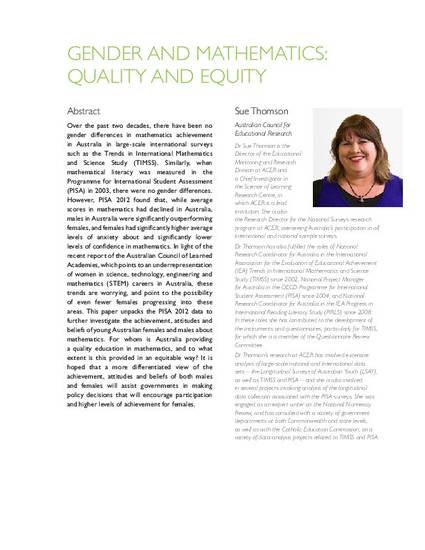
Over the past two decades, there have been no gender differences in mathematics achievement in Australia in large-scale international surveys such as the Trends in International Mathematics and Science Study (TIMSS). Similarly, when mathematical literacy was measured in the Programme for International Student Assessment (PISA) in 2003, there were no gender differences. However, PISA 2012 found that, while average scores in mathematics had declined in Australia, males in Australia were significantly outperforming females, and females had significantly higher average levels of anxiety about and significantly lower levels of confidence in mathematics. In light of the recent report of the Australian Council of Learned Academies, which points to an underrepresentation of women in science, technology, engineering and mathematics (STEM) careers in Australia, these trends are worrying, and point to the possibility of even fewer females progressing into these areas. This paper unpacks the PISA 2012 data to further investigate the achievement, attitudes and beliefs of young Australian females and males about mathematics. For whom is Australia providing a quality education in mathematics, and to what extent is this provided in an equitable way? It is hoped that a more differentiated view of the achievement, attitudes and beliefs of both males and females will assist governments in making policy decisions that will encourage participation and higher levels of achievement for females.
Available at: http://works.bepress.com/sue_thomson/82/
